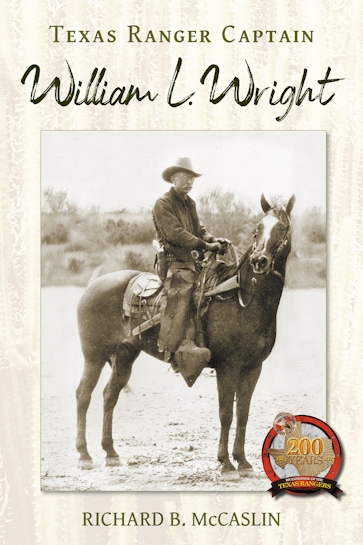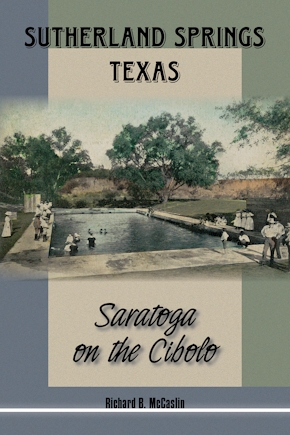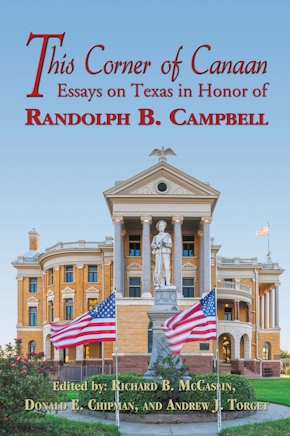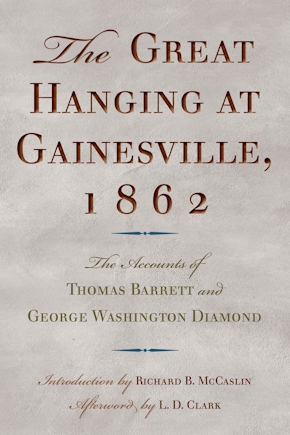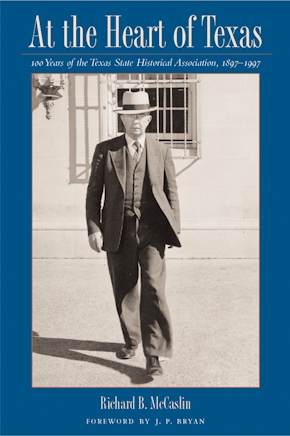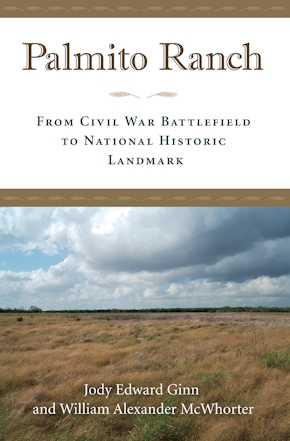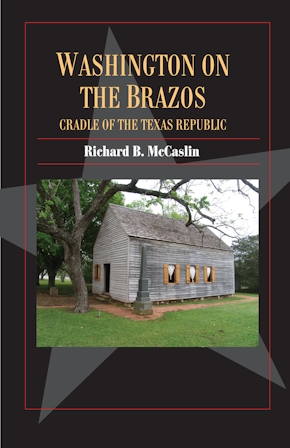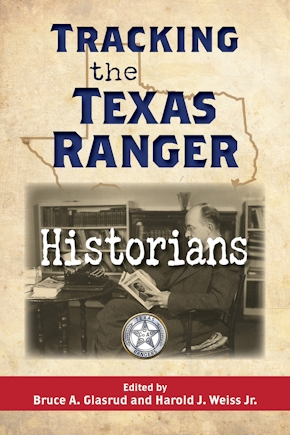Texas Ranger Captain William L. Wright
978-1-57441-845-3 Cloth
6 x 9 x 0 in
416 pp. 32 b&w illus. 3 maps. Notes.
Pub Date: 10/22/2021
Available
BUY NOW
- Cloth $34.95
William L. Wright (1868-1942) was born to be a Texas Ranger, and hard work made him a great one. Richard B. McCaslin argues that, considering his lineage, it is hard to imagine what else he might have done. Eight of Wright’s relatives served as Rangers before the Civil War, five joined the Frontier Battalion from 1874 to 1901, and twenty-two were in the Ranger Force from 1901 to 1935. Wright tried working as a cowboy and farmer, but it did not suit him. Instead, he became a deputy sheriff and then a Ranger in 1899, battling a mob in the Laredo Smallpox Riot, policing both sides in the Reese-Townsend Feud, and winning a gunfight at Cotulla.
His need for a better salary led him to leave the Rangers and become a sheriff. He stayed in that office longer than any of his predecessors in Wilson County, keeping the peace during the so-called Bandit Wars, investigating numerous violent crimes, and surviving being stabbed on the gallows by the man he was hanging. When demands for Ranger reform peaked, he was appointed as a captain and served for most of the next twenty years, retiring in 1939 after commanding dozens of Rangers.
Wright emerged unscathed from the Canales investigation, enforced Prohibition in South Texas, and policed oil towns in West Texas, as well as tackling many other legal problems. When he retired, he was the only Ranger in service who had worked under seven governors. More important, historians have included him among the “Big Four” captains of the Ranger Force. Wright thus joins such leaders as Francis A. “Frank” Hamer, Thomas R. “Tom” Hickman, and Manuel T. Gonzaullas, all of whom accompanied him in being inducted into the Texas Ranger Hall of Fame at Waco.
About the Author
Reviews
Published by University of North Texas Press
